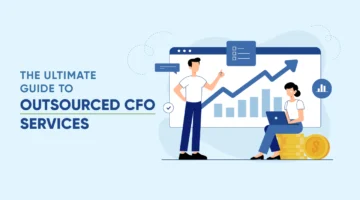Now is the Best Time to Start Preparing for The Fiscal Year End
As the end of the year approaches the number one priority for any business needs to be preparing and organizing the accounts, closing out the books, and finalizing the new year’s budget. Without proper planning, accomplishing these tasks, alongside regular business tasks can increase the chances of serious financial mistakes.
Tracking down assets, accounting for liabilities, and calculating equity is better done now, rather than later. For a company, knowing the tasks that need to be accomplished, prevents tasks from slipping between the cracks.
What Should Be Done
An accurate account of assets is vital to a company’s understanding of its profits and equity. The end of the year is the time to verify misplaced assets and the depreciation of long-term assets.
Begin by:
- Checking the company’s bank accounts against the records kept by each department. Out of sync records and accounts need to be corrected before it creates a problem for the following year.
- Create an updated inventory list by physically counting every item. Inventory lost throughout the year will create an increased expense and inflate the cost of goods. An accurate count will also help when it comes time to creating a new budget for the following year.
- Liabilities are a necessary part of business. As the year draws to a close, create an accurate record of loans, credit card spending, and other company liabilities. The amortization of intangible assets should be calculated to create a more accurate long-term and profit report.
- Check that purchases made on company credit cards are being expensed correctly. Problems occur when payments and expenses are not recorded properly, creating an inaccurate expense report.
- Keeping and creating stockholder interest in a company is driven by equity. Informing shareholders of the company’s equity and paying dividends early, will increase confidence in the company’s progress. In turn, early communicating and reporting makes growth more fiscally responsible. By managing a company’s assets and liabilities, any changes in equity will be easy to spot and adjust.
When to Begin
January is a busy time for accounting, and procrastinating will make closing the books for the year more difficult, stressful and time consuming. To reap the most benefit from organizing all the financial odds and ends within a company, begin in mid-November or early December.
After closing the books, a company should create a tax strategy to save money and make filing easier. Sending out W-2’s and 1099’s early in January will be easier, especially if a company employs several contractors.
In the long run, starting these large year end tasks earlier will make running a business less stressful. It sets a company up for success in the coming year. Over time, cleaning up the books and balancing ledgers during the year will become part of company culture. Waste and mistakes will become less of a problem, creating a more profitable company overall.
Closing a company’s books is something that Now CFO can do for you. We have experience with Establishing budgets, reconciling the balance sheet, tracking down spending and creating a detailed report on profit and loss – even during the busiest times for accounting teams. See how we can help as 2018 draws to a close.



